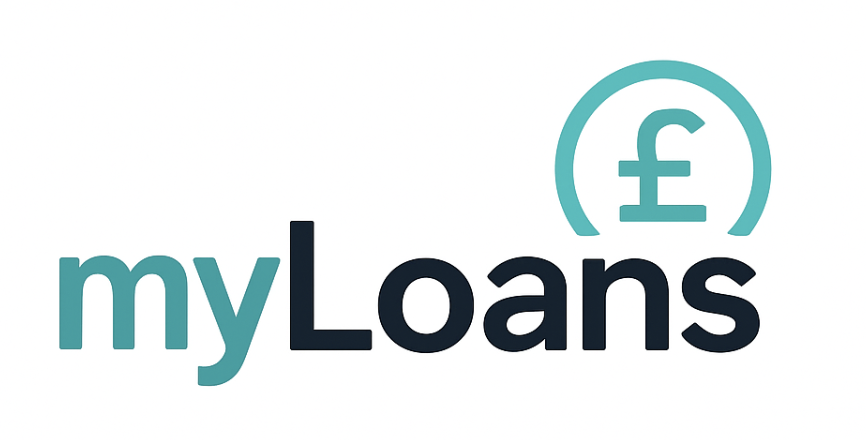The Basics of Loans Explained: A Guide
When it comes to managing finances, loans are a common tool that many people use. But what exactly is a loan, and how does it work? In this article, we’ll break down the basics of loans, covering everything from definitions to how they function. By the end, you’ll have a clearer understanding of different types of loans and how they might fit into your financial plans.
What is a Loan?
At its core, a loan is a sum of money borrowed from a lender, such as a bank, building society, or finance company, with the promise to repay it over time. The borrower agrees to pay back the loan amount, known as the principal, along with any interest. Interest is the cost of borrowing money and is expressed as a percentage of the amount borrowed. In the UK, lenders are required to display a Representative APR to show the typical cost of a loan.
Define Bank Loan
A bank loan is a type of credit provided by a bank or building society to a borrower. The lender sets the terms, including how much can be borrowed, the interest rate, and the repayment period. Loans can be:
-
Secured – backed by collateral such as property or a vehicle.
-
Unsecured – not backed by assets, but usually carrying higher interest rates.
How Do Loans Work?
Loans work by providing borrowers with funds upfront, which are then repaid over time. Repayments are normally made in monthly instalments, each covering a portion of the principal and interest.
The Loan Process
-
Application – You apply by providing documents such as proof of identity, income, and financial history.
-
Assessment – The lender checks your credit file (via UK agencies like Experian, Equifax, or TransUnion) and carries out affordability checks to ensure repayments are manageable.
-
Approval – If approved, the lender sets out the terms in a credit agreement.
-
Disbursement – The funds are released, either to your bank account or directly to pay for goods/services (e.g. car finance).
-
Repayment – You make regular payments until the loan is fully paid off.
Types of Loans
There are various types of loans available in the UK, each serving different needs:
Personal Loans
Unsecured loans offered by banks, building societies, or online lenders. They can be used for debt consolidation, home improvements, or other personal expenses.
Secured Loans
Also known as homeowner loans, these require collateral such as property. They often allow you to borrow larger amounts at lower rates but carry the risk of repossession if you fail to repay.
Unsecured Loans
Loans without collateral, typically in amounts between £1,000 and £25,000. Because they’re higher risk for lenders, they usually come with higher interest rates. Personal loans and credit cards fall into this category.
Car Finance
Instead of a standard bank loan, many borrowers use products like Hire Purchase (HP) or Personal Contract Purchase (PCP) to finance a vehicle. These are regulated under UK consumer credit rules.
Interest Rates and Loan Terms
Interest Rates
In the UK, loans are advertised with a Representative APR (Annual Percentage Rate), which shows the total cost of borrowing, including compulsory fees. Rates can be:
-
Fixed – the rate remains the same for the loan’s duration.
-
Variable – the rate can change in line with market conditions.
Loan Terms
The loan term is the time you have to repay. UK personal loans typically range from 1 to 7 years.
-
Longer terms – lower monthly payments but higher total interest.
-
Shorter terms – higher monthly payments but less interest overall.
What Does Personal Loan Mean?
A personal loan is an unsecured borrowing option that can help cover financial needs without requiring collateral. However, because there’s no security for the lender, the interest rates may be higher than those on secured loans.
How Do Personal Loans Work?
To obtain a personal loan in the UK, you’ll usually:
-
Determine your needs – work out how much you need and for what purpose.
-
Research lenders – compare banks, building societies, and online providers.
-
Apply – submit your application with proof of ID, income, and bank details.
-
Approval – if approved, review the loan agreement and Representative Example carefully.
-
Receive funds – money is transferred into your account.
-
Repay – make monthly payments until the loan is cleared.
Advantages and Disadvantages of Loans
Advantages
-
Access to funds – Immediate access to money for personal or business needs.
-
Flexible options – A range of loan types to suit different circumstances.
-
Build credit – Timely repayments can strengthen your credit file.
Disadvantages
-
Interest costs – Borrowing always comes at a price.
-
Debt risk – Taking on too much credit can strain finances.
-
Collateral risk – With secured loans, assets may be repossessed if you default.
Conclusion
Understanding loans is crucial for making sound financial decisions. Whether it’s a personal loan, a secured homeowner loan, or car finance, knowing how loans work helps you choose the right product for your needs. Always compare the Representative APR, read the terms carefully, and consider speaking with a financial advisor if you’re unsure.
By understanding the basics of loans in the UK, you can confidently navigate the borrowing process and use loans as a tool to support your financial goals.
Alternatives to Payday Loans | Safer Borrowing Options
Payday loans are often marketed as a quick fix for cash emergencies, but they are not the only option available. Whether you’re facing an unexpected bill, car repair, or temporary cash shortfall, there are several alternatives to payday loans that may offer lower...
Payday Loans with Bad Credit | Direct Lender Options
If you’ve been refused credit elsewhere and are wondering whether you can still get a payday loan with bad credit, you’re not alone. Thousands of people in the UK search every month for options like “payday loans with bad credit” or “direct lender payday loans”. While...
Personal Loan Debt Consolidation UK – Is It Right for You?
Juggling multiple credit cards, overdrafts, or loans can be stressful and expensive. A debt consolidation loan allows you to combine everything into a single monthly repayment, often at a lower interest rate. In 2025, UK lenders from high street banks to online...
Emergency Loans UK – How to Borrow Fast in 2025
When an urgent expense hits — like car repairs, medical bills, or a broken boiler — quick access to funds can be essential. In 2025, emergency loans in the UK provide a way to borrow fast, with some lenders offering same-day decisions and payouts. This guide explains...
Top 10 Personal Loan Providers UK 2025 – Rates, Features & Eligibility
The UK personal loan market in 2025 offers more choice than ever, with banks, supermarkets, online lenders, and credit unions all competing for borrowers. The best deal for you depends on your credit score, loan size, and repayment term — but comparing providers side...
Best Debt Consolidation Loans UK 2025 | Top Options
Managing multiple debts can feel overwhelming, especially with credit cards, overdrafts, and personal loans all charging different interest rates. A debt consolidation loan can simplify your finances by rolling everything into one fixed monthly repayment — often at a...
Best Bad Credit Loans UK 2025 – Top Lenders Compared
Having a poor credit score, CCJs, or past defaults doesn’t mean borrowing is out of reach. In 2025, several UK lenders specialise in products designed for people with bad credit — offering smaller loans, flexible repayment terms, and eligibility checks that won’t harm...
Home Repair Loans UK – How to Cover Unexpected Costs in 2025
A leaking roof, broken boiler, or urgent plumbing issue can quickly turn into an expensive problem — often when savings aren’t available. In 2025, home repair loans in the UK provide a way to spread the cost of essential fixes into manageable monthly repayments. This...
Green Energy Loans UK – How to Finance Eco-Friendly Home Improvements in 2025
Eco-friendly upgrades such as solar panels, insulation, heat pumps, and EV chargers can cut energy bills and boost property value — but they require a significant upfront investment. In 2025, green energy loans in the UK provide a way to spread the cost of sustainable...
Moving House Loans UK – How to Cover Relocation Costs in 2025
From deposits and removal vans to solicitor fees and new furniture, moving house in the UK can quickly add up to thousands of pounds. Not everyone has savings set aside to cover these costs upfront. In 2025, moving house loans in the UK provide a way to spread...
Education Loans UK – How to Fund Studies and Professional Courses in 2025
Not all education in the UK is covered by government student finance. Postgraduate degrees, professional qualifications, and private training often require self-funding — with tuition fees and course costs running into thousands of pounds. In 2025, education loans in...
Holiday Loans UK – How to Spread the Cost of Travel in 2025
Holidays can be some of the most rewarding experiences of the year, but they often come with a price tag that’s hard to cover upfront. From flights and hotels to all-inclusive packages and once-in-a-lifetime trips, the costs can add up quickly. In 2025, holiday loans...
Best Personal Loans UK 2025 – Top Lenders Compared
The UK personal loan market in 2025 is more competitive than ever, with high street banks, supermarkets, online lenders, and credit unions all offering products to suit different needs. Choosing the right provider can save you hundreds in interest and ensure...
Medical Loans UK – How to Finance Healthcare Costs in 2025
While the NHS covers most essential treatment, waiting lists, private care, and specialist procedures mean many people face out-of-pocket medical expenses. From dental work and fertility treatment to cosmetic surgery and urgent private healthcare, costs can run into...
Car Loans UK – Personal Loan vs Hire Purchase vs PCP in 2025
Buying a car in 2025 usually means more than just choosing the right vehicle — it also means deciding how to pay for it. In the UK, the three main options are a personal loan, hire purchase (HP), or personal contract purchase (PCP). Each has its own advantages,...
















